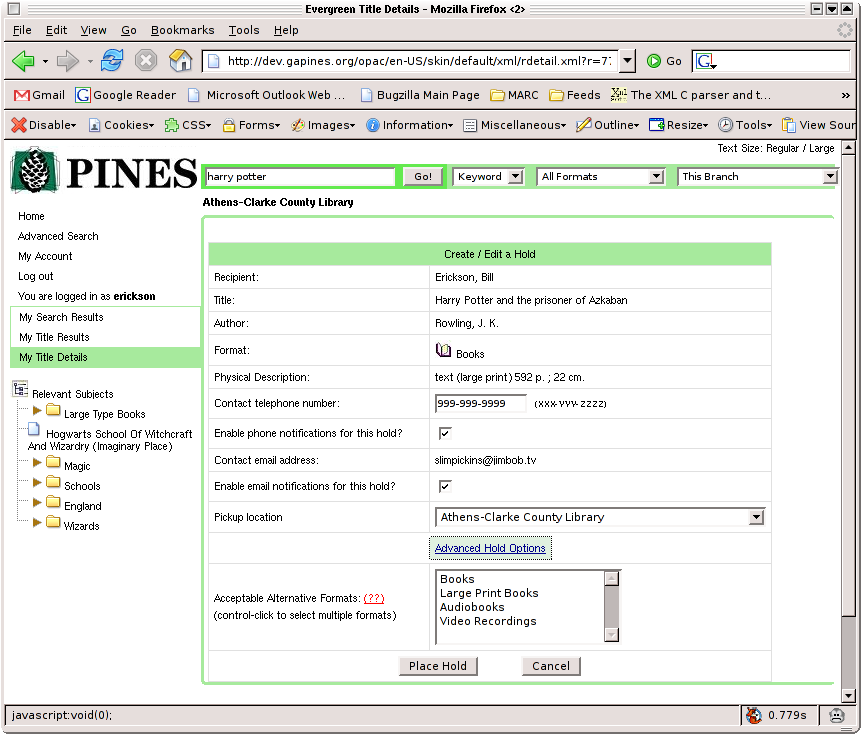That’s right, folks. We’re only two weeks away from the PINES consortium migrating to the Evergreen ILS. Two weeks. It’s hard to believe.
Someone dropped me an email yesterday and mentioned that there hasn’t been any recent activity on this blog. Yeah… sorry about that, but things have been very busy internally (as any PINES library staff member will tell you). Over the past month, PINES central staff have travelled all over the state training hundreds of library staff on the software. The development team has been extremely busy making last-minute tweaks, fixing bugs, bringing up and configuring the production hardware, and performing dry runs of the data translation and load.
We’re ready, and all systems are go.

